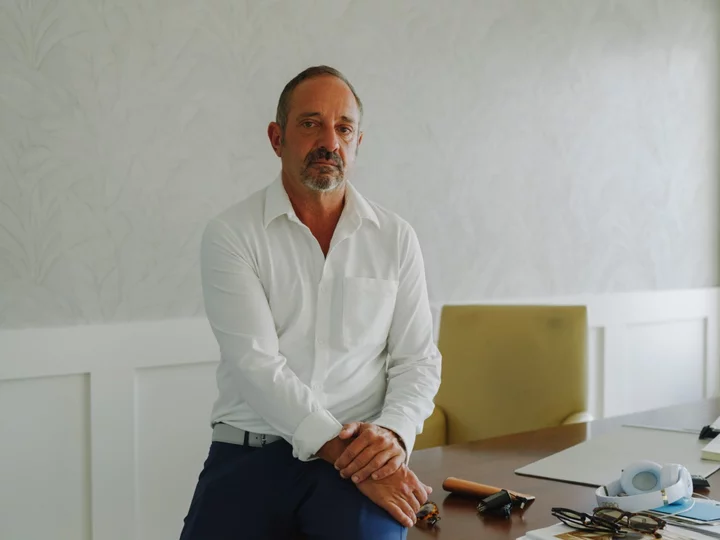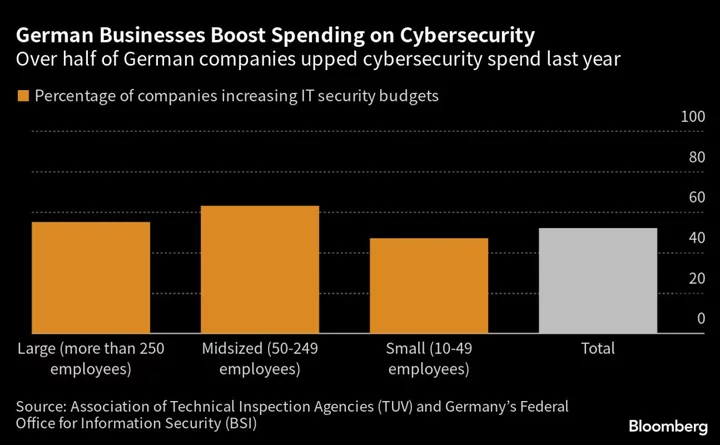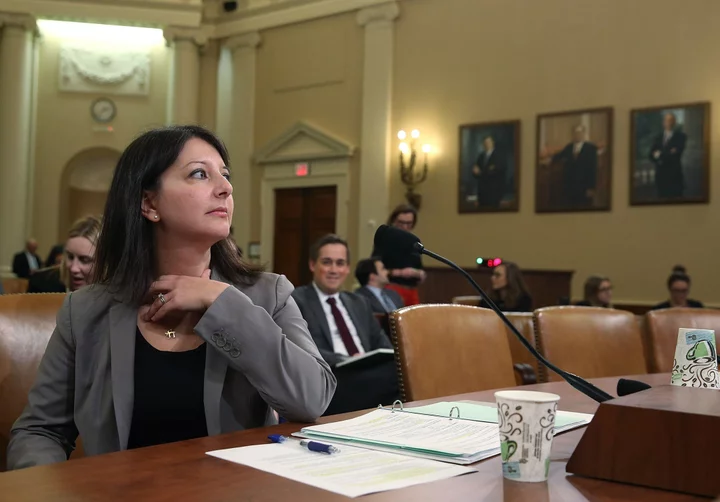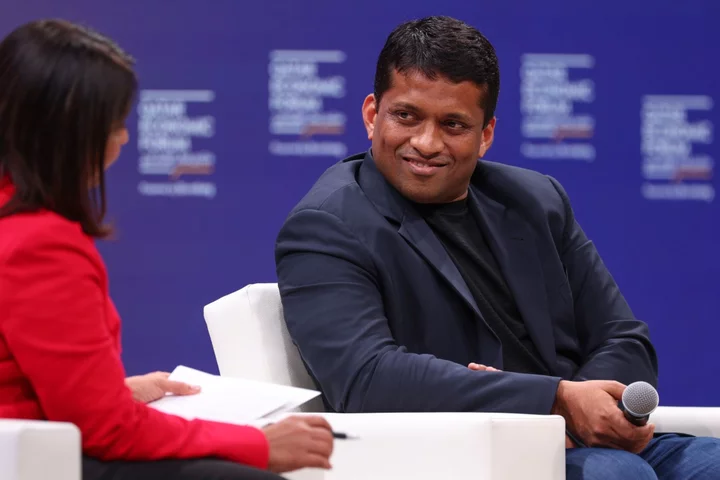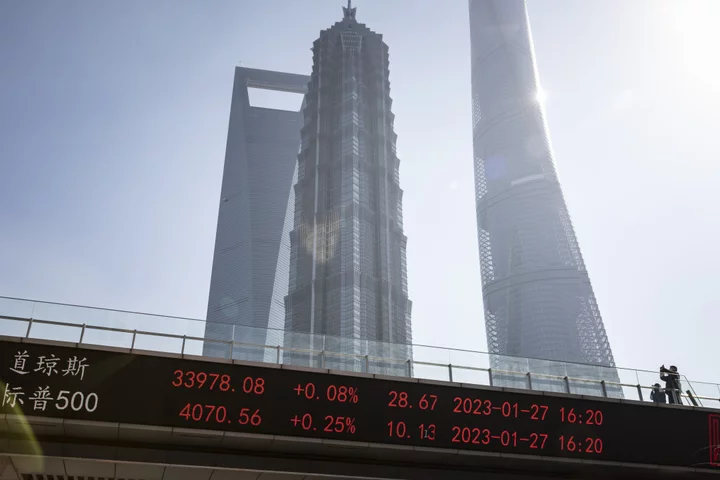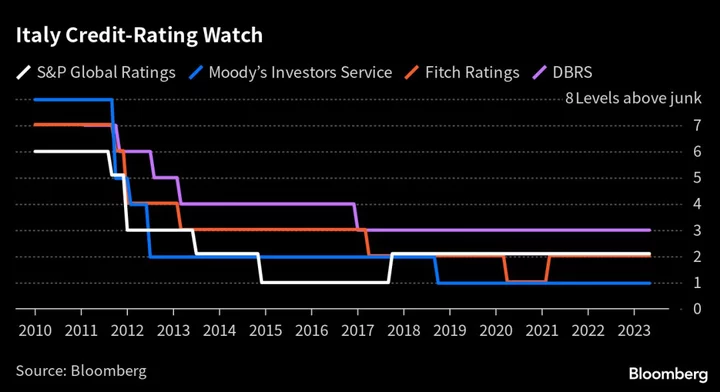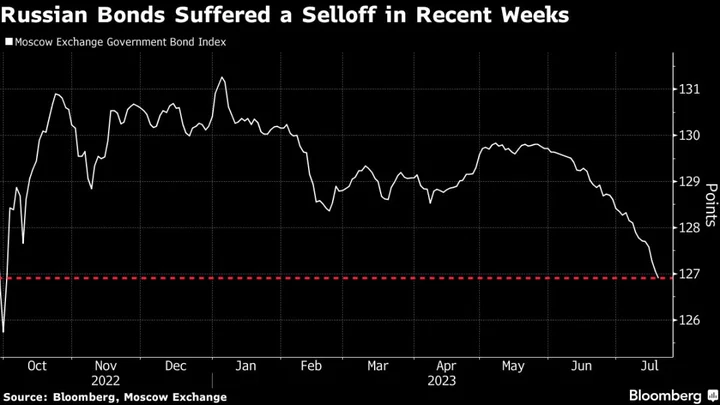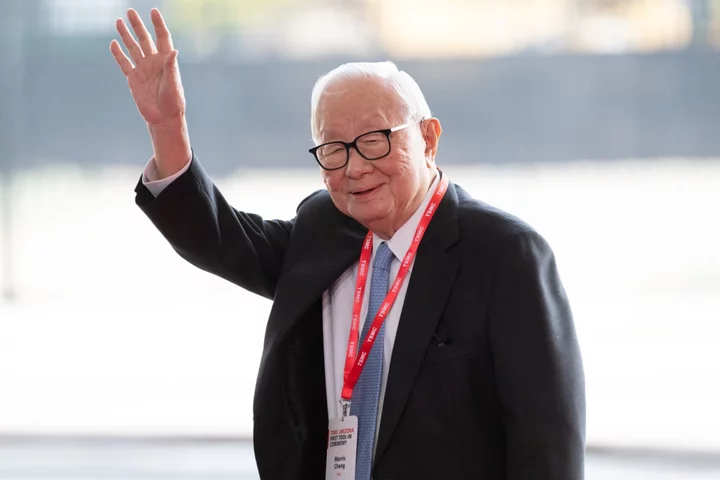Andrew Left is behind the wheel of a dark gray Range Rover cruising through Beverly Hills with the windows down on a cool morning. Though he’s sworn off smoking, he’s looking to buy a pack of Marlboro Lights.
Two years after FBI agents showed up at his California home to seize computers and phones, the short seller who terrorized more than 100 companies and riled an army of meme-stock traders is describing what it’s like to feel hunted. His pioneering firm, Citron Research, no longer has investors. He’s all but stopped pitching ideas publicly. He even wiped his once-feared Twitter account.
Left is living in limbo, waiting to learn if the Justice Department and Securities and Exchange Commission plan to charge him in their sweeping investigations of tactics used by activist short sellers. After emerging as one of the first figures to draw scrutiny in the probe of potential market manipulation, Left says prosecutors stopped reaching out more than nine months ago – leaving him to wonder whether they’ve gone away or are closing in.
“Three nights ago, I woke up and looked at my email and it says ‘DOJ letter,’ and I’m like ‘Oh, here it is,’” Left said. It turned out to be a draft letter one of his lawyers wrote asking the Justice Department for an update.
Even deliveries rattle him. “Imagine living like that. When my dogs bark at the gate for Amazon, I’m like someone’s there. It’s scarring.”
His predicament shows how the dragnet – gathering communications involving dozens of bearish investors and their researchers – has shaken the raucous business of activist short selling, prompting some such as Left and Muddy Waters’s Carson Block to at least pause their work or adopt more restraint. Altogether, the number of major new campaigns slumped 16% to 113 last year, according to Breakout Point, which tracks bearish investors.
That’s helped clear the field for a rising generation, such as Hindenburg Research’s Nate Anderson, who’s made waves this year targeting empires controlled by Indian tycoon Gautam Adani and Wall Street legend Carl Icahn.
Anxiety over the Justice Department’s investigation intensified several weeks ago when the head of its market integrity and major frauds unit predicted at a legal conference that the public will start seeing results within a few months. He didn’t elaborate. Since then, short sellers have buzzed over who among them might be in the crosshairs.
Spokespeople for the Justice Department and SEC declined to comment.
The probe began ramping up a few years ago as the House Financial Services Committee was embarking on a series of hearings into what the panel’s chairwoman, California Democrat Maxine Waters, called “predatory short selling.”
In rare moments of bipartisan agreement, lawmakers across the spectrum expressed concern that short sellers were hurting everyday investors while reaping billions of dollars for themselves. Critics cited academic studies questioning whether market manipulation, rather than the strength of bearish research, better explained violent drops in stocks. Some embattled executives said bearish traders were teaming up to topple viable-yet-vulnerable companies.
“It can have a cascading event on the share price,” said Paul Pelletier, a former federal prosecutor who’s represented a company shorted by an activist. “That can drive a company out of business regardless of whether the information is true or not.”
Federal investigators haven’t specified what or who they’re examining, nor have they accused anybody of misconduct. The inquiries could end without any charges.
“I have no idea what this investigation is about,” Left said during an almost five-hour interview that began with a breakfast of bagels and lox at the London West Hollywood hotel before driving around town. “Imagine explaining that to your kids, to your family. I don’t think I’ve done anything wrong. It’s cost me a lot of money, a lot of stress, and I don’t know why. Not to mention, it changed my life.”
At one point, he asked for a hug.
Roller Coaster
Even by Wall Street standards, short sellers are famously high strung. They see conspiracies everywhere. The bets they place – typically borrowing stock and selling it in the hopes of buying it back cheaper for a profit – can generate steep gains or losses, ensuring a roller coaster of emotions.
To those who track those dramas, Left’s origin story is well known: Raised by a deli worker and an office secretary, he answered a newspaper ad in his 20s for a $100,000 job selling commodities. He found himself in a boiler-room operation — a notorious offshoot of Wall Street where armies of brokers work phones to pitch lackluster stocks to rubes. He didn’t stay long and was soon trading against what he saw as scams.
At 30, he took what he had learned, and $50,000 of his savings, to go public with his trading ideas. He launched a website and named his firm Citron to target the type of lemon stocks he used to sell.
That first decade was lonely. But as Chinese companies flocked to US markets, more activists including Block made names for themselves pointing out accounting irregularities. Soon, hedge funds were vying for pieces of the action.
Now 53, Left estimates he’s published around 200 reports over the years. Well over a dozen of the companies he targeted were later delisted or filed for bankruptcy. At several of them, US authorities followed up with civil or criminal charges against executives.
Examples include Valeant Pharmaceuticals, which Left accused of being at the center of an illicit sales scheme. When then-US Attorney Preet Bharara later announced charges against two executives linked to the company, he referenced the role that investor websites and news organizations played.
But increasingly, companies under pressure fought back, turning to courts, lawmakers and federal investigators for help. Left has battled lawsuits by jilted executives and for a time was barred from trading stocks in Hong Kong. Now, he argues, the US government is focusing on the wrong side.
“I’ve found more bad players than anyone else,” he said after stubbing out a cigarette just off Sunset Boulevard. “Where’s my White House visit?”
‘Smash and Grab’
Activist short sellers typically line up positions, publish research and wait for the stock to fall. Some cover their bets in minutes, giving antagonists – including angry corporate executives – little chance to drive up the price to squeeze bearish wagers.
Left said that strategy helps manage risks, that his research is honest and that he deserves to be rewarded for pointing out wrongdoing.
“When you’re an activist short seller, your informational advantage over the street is around a half an hour,” he said. “For three months, while you were at your kid’s baseball game, I was investigating a fraud. While you were watching Netflix with your wife, I was up all night working.”
Other activists, such as Marc Cohodes, deride that quick retreat as “smash and grab,” criticizing the practice as unethical and possibly illegal. It gives the public little time to check the validity of research as the stock starts diving. Critics also argue that bearish investors too often leave the impression they’re maintaining a short bet long after they’ve walked away.
Left said he may keep a portion of his position in play in case the shares fall further. What he won’t do, he said, is close out and bet on a rebound. Even if he did, Left isn’t sure that would be against the law.
“‘Smash’ is the wrong word because that means forcefully entering something that shouldn’t be entered,” Left said. “What about instead of ‘smash and grab,’ I said ‘expose and grab?’ Is that as bad?”
The government’s hunt for communications indicates it’s examining whether firms act in concert, potentially amplifying a report’s impact on a stock.
US rules bar some specific trading practices that could, theoretically, manipulate a stock by artificially signaling the start of a price swing. They include spoofing, in which traders rapidly submit and cancel orders, and matched trading, which usually involves a few parties setting up trades at certain levels.
Left said he doesn’t even know what those terms mean. “I could understand if the government thought there was a short selling cabal out there,” Left said. “Like we all get together and go ‘Hey, let’s go destroy companies.’ This doesn’t work like that.”
Meme Traders
Short bets don’t always work out. Two years ago, Left got burned when armies of retail traders organized on message boards such as Reddit and set out to squeeze firms such as Citron and Gabe Plotkin’s Melvin Capital that were betting heavily against stocks such as GameStop Corp. or AMC Entertainment Holdings Inc. That meme-stock frenzy not only put pressure on Citron, it fueled personal attacks against Left and his family. Some antagonists sent messages to his kids’ Snapchat and social media accounts.
For the first time, Left said, his kids understood what he did for a living.
Ironically, Left considers his GameStop loss one of his wisest moments. That’s because he covered his position when the stock reached $92 and before margin requirements became unbearable. “The best trade I’ve ever made in my whole life was getting out. How crazy is that?” he said. If he had stayed two days longer, he estimates he would have been wiped out.
That’s when it dawned on Left that the game he’d played for years had changed: The public saw him as the establishment he had set out to challenge.
In late January 2021, he sat in front of his computer to record a video announcing he was ending publication of short-sale research. As he wrapped up, a group of federal agents were nearing his home with a search warrant for his phones and computers. The problem was, the feds had gone to his house in Beverly Hills while he was at his place in Boca Raton, Florida. A friend staying at the California house called, and later that day Left turned over his materials to the feds.
A few months later, Left unexpectedly became the primary parent to his two eldest children when his ex-wife died. “So now I’m having GameStop, DOJ and being a hands-on dad,” Left said. “I’ve never had to be a hands-on dad.” On the day of the interview, that meant making sure one of his sons got to a skate park and fetching medicine for his daughter, who wasn’t feeling well.
Meanwhile, as part of its sweeping probe, the Justice Department has subpoenaed a variety of other market participants, such as Block and Toronto-based Anson Funds, seeking communications, calendars and other records relating to almost 30 investment and research firms, as well as three dozen individuals associated with them. The SEC followed up with its own inquiries. The subpoenas refer to a broad look into possible manipulation through collusion or insider trading. Left said he received another subpoena last year seeking information on trading in blue chip stocks such as Goldman Sachs Group Inc. and Alibaba Group Holding Ltd.
Country Club
Once word of the investigation became public, Left said the consequences were immediate. “You go to apply to a country club or you go try to get your kid into a private school and the first thing that comes up is ‘Oh God, the FBI, the DOJ,’” Left said.
Not to mention the impact on his business: “I’ve been taken out of the loop. Who’s going to feed me information or talk stocks with me? I wouldn’t talk stocks with me.”
Left hasn’t stepped back entirely. In April, he released a report on a financial services firm in Kazakhstan. In May, the company said it wouldn’t file an annual report on time because an audit wasn’t finished. Last month, the Nasdaq Stock Market warned the company could be delisted.
Yet, every so often, Left is reminded he’s still being watched. Shortly after he deleted his Twitter account in March, the SEC reached out asking for a copy of all the tweets he ever published.
“I’m like, you already have all the tweets,” Left said. “It doesn’t go away. Just Google.”
Despite that defiance, he’s clearly on edge. In the hotel lobby, Left pauses at a television to read aloud a CNN headline that the Justice Department had warned Donald Trump he’s the target of an investigation. Left ponders that bit of the process.
“OK, there you go,” he said, lost in thought for a moment. “I don’t know what that means for me.”
--With assistance from Katherine Burton and Lydia Beyoud.

